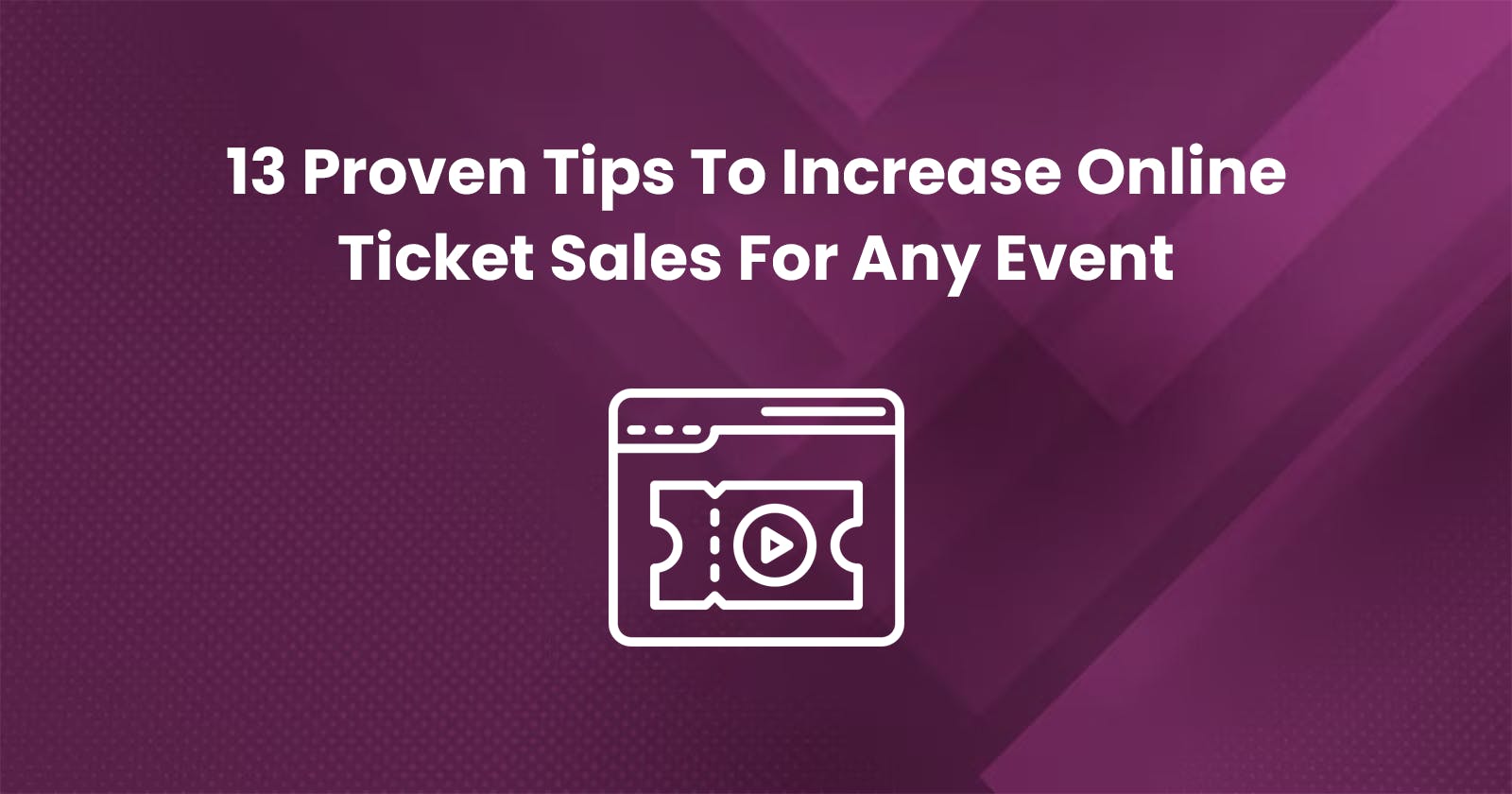Hosting an event is an exciting endeavor, but the challenge often lies in filling those seats and ensuring a vibrant turnout. If you're finding yourself a bit frustrated by lackluster ticket sales, don't worry because it’s an easy fix.
Many event organizers face the same hurdle. The good news? The path to a packed house is simpler than you might think, and we're here to guide you through it.
In this blog, we'll delve into the art of boosting your online ticket sales effectively. Whether you're planning a music concert, a charity gala, a business conference, or any other type of event, the principles we'll discuss apply universally.
The beauty of these strategies lies in their accessibility – no matter your experience level, you can put them to work for you.
Alright then, let’s dive into the heart of the matter and explore the twelve proven ways that will help transform your event's online ticket sales from a challenge into a triumph!
Think about your ticket pricing strategy
Create tiered pricing and time-based offers
Create scarcity to create demand
Plan your discounts smartly
Create a fantastic event page
Optimize the event page for mobile
Make the checkout process quick and easy
Leverage referral programs and contests
Promote your event on social media
Use email drip campaigns
Leverage both new and established forums and communities
Team up with partners and sponsors
Make use of your speakers’ and/or performers’ followings
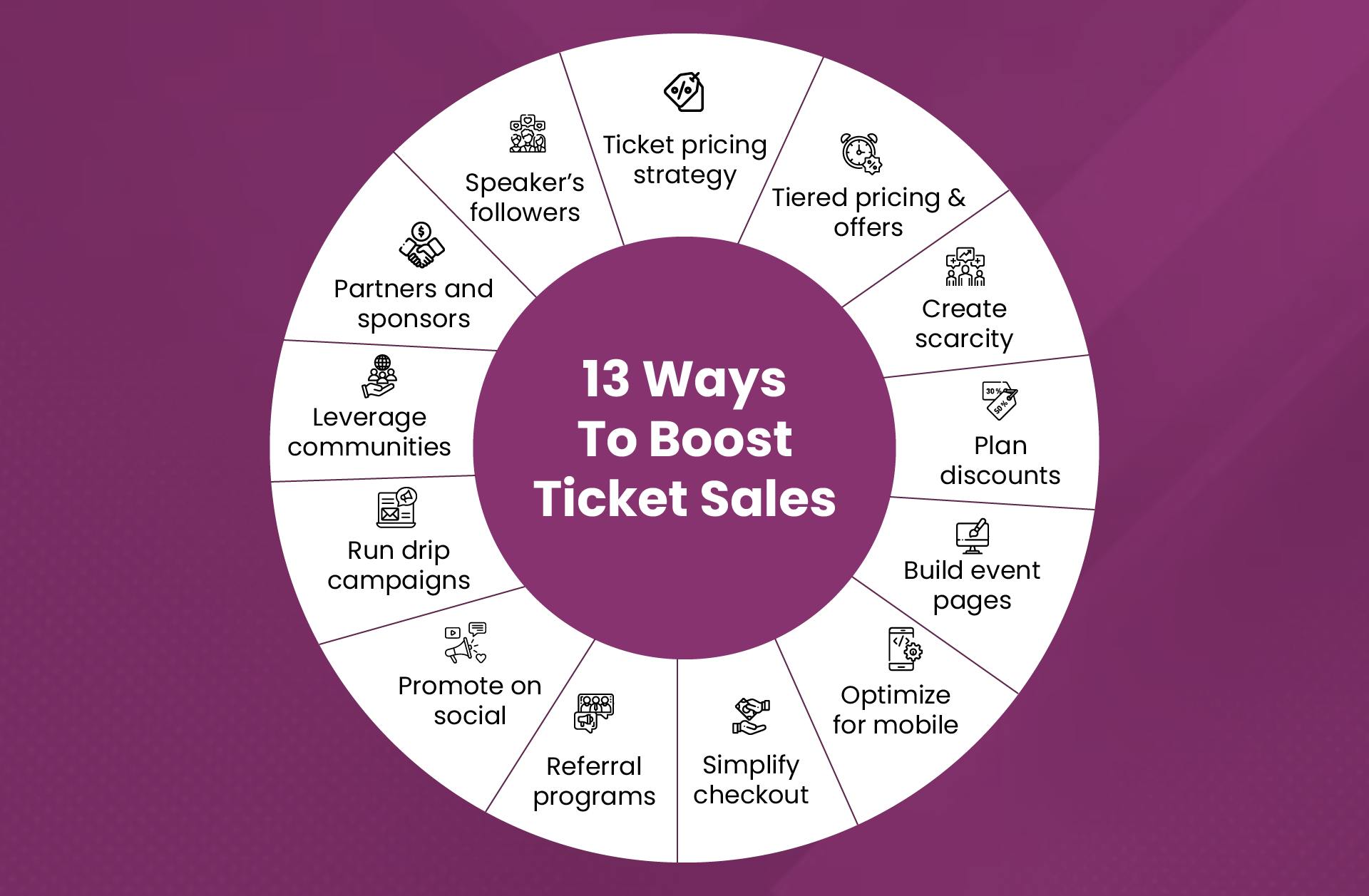
1. Think about your ticket pricing strategy
When it comes to ticket pricing, it's not just a matter of slapping a random number on them. Your pricing strategy plays a crucial role in attracting potential attendees and maximizing your event's profitability.
But how do you determine the magic number that strikes the balance between affordability and value?
Start by considering your event's unique features – is it a once-in-a-lifetime experience, a niche gathering, or a regular occurrence? Factor in your target audience's demographics, including their disposable income and their willingness to pay for your event's offerings.
Research your competition to gauge the current market rates for similar events, and position your pricing accordingly.
Don't forget to analyze your costs – expenses like venue rental, performers' fees, catering, and marketing efforts should be covered without leaving you in the red.
Keep in mind that flexibility is key; if you notice ticket sales lagging, be prepared to adjust your prices strategically to attract a larger crowd.
Ultimately, the sweet spot lies in striking the right balance between perceived value and reasonable cost. Your pricing should resonate with your audience, making them feel that they're getting a fantastic deal for the experience they'll enjoy.
Remember, a well-thought-out pricing strategy can not only drive ticket sales but also set the tone for your event's overall perception.
2. Create tiered pricing and time-based offers
One-size-fits-all doesn't apply when it comes to event ticketing. Offering tiered pricing and time-based offers adds a dynamic element to your ticketing strategy that appeals to a wider range of attendees.
Tiered ticket options could include a few like:
Early-bird tickets
Regular tickets
Last Minute tickets
Waitlist tickets
VIP tickets
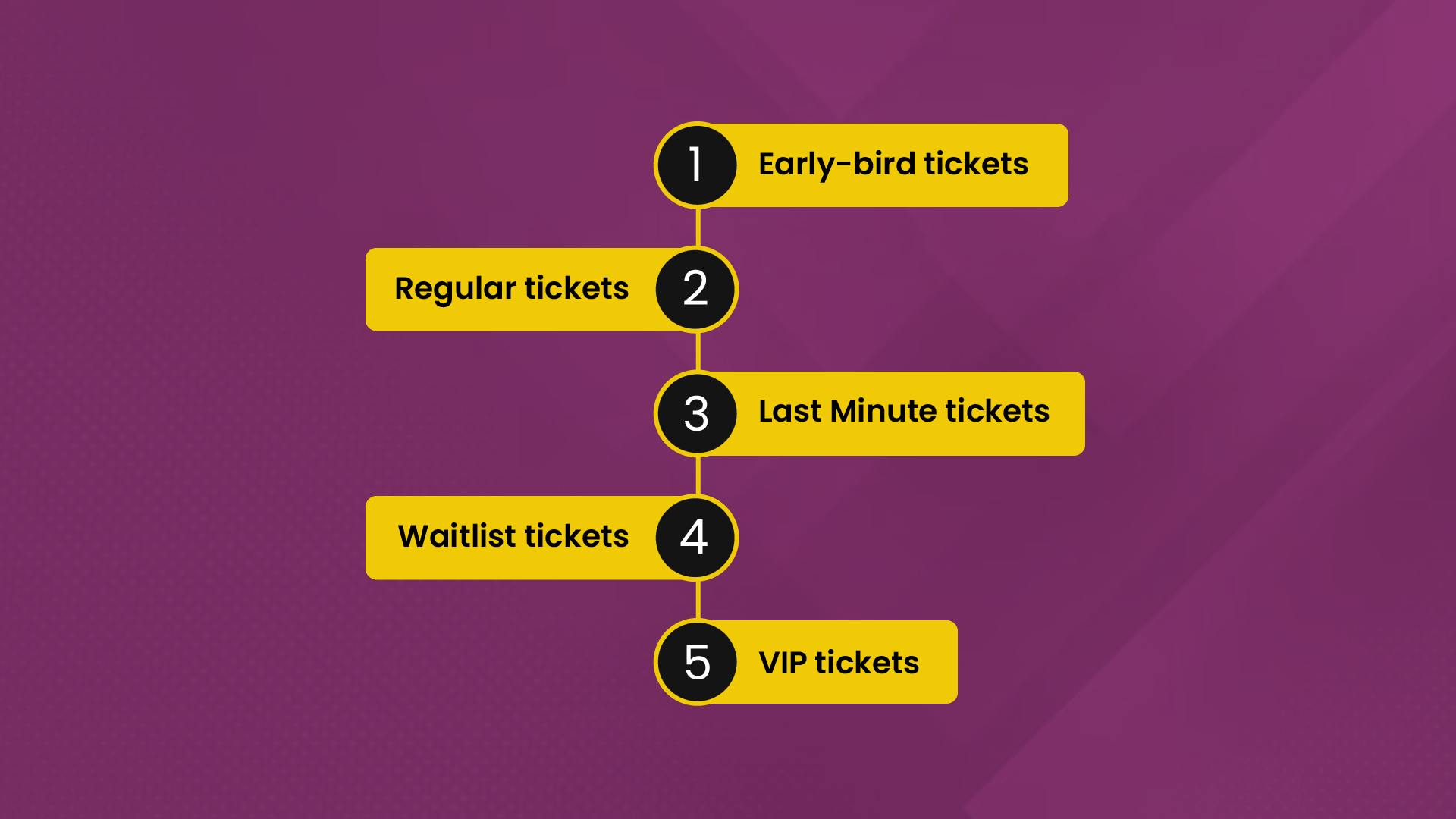
Imagine you're hosting a conference – you can offer Regular tickets for standard access, Early-bird tickets for the eager beavers who register ahead of time, and VIP tickets that grant premium perks like front-row seats or exclusive meet-and-greets.
But the options don't stop there. Consider implementing Waitlist tickets for those who missed the initial sale, Approval-based tickets for exclusive events where each attendee's request is reviewed before approval, and Hidden tickets that require a special access code.
This can create an air of exclusivity and intrigue, driving curiosity and increasing ticket sales.
Incorporate limited-time offers to create a sense of urgency. Flash sales, where tickets are discounted for a short period, can encourage fence-sitters to make a decision sooner rather than later.
Bundling tickets with other goodies, like event merchandise or workshops, can also enhance the perceived value of your offerings.
By diversifying your ticket options and introducing time-based incentives, you're not only accommodating various preferences but also fostering excitement and engagement around your event.
The key here is to understand your audience's desires and offer options that align with their preferences, ultimately boosting both sales and attendee satisfaction.
3. Create scarcity to create demand
Imagine a scenario where a highly sought-after item is almost out of stock. Suddenly, everyone wants it, right? That's the magic of scarcity, and it works just as effectively in the world of event ticketing.
By limiting the number of available tickets or introducing time-bound offers, you can ignite a sense of urgency that drives people to secure their spots.
When attendees perceive that seats are running out or that a special deal is about to expire, they're more likely to take swift action. This urgency taps into the fear of missing out (FOMO), a powerful psychological trigger.
Highlight the limited number of tickets left, display countdown timers for time-based offers, and craft compelling messages that emphasize the exclusivity of the opportunity.
Creating scarcity doesn't mean artificially restricting access; it means strategically managing the supply of tickets to match the demand. This technique can boost ticket sales and foster a heightened buzz around your event.
People are naturally drawn to what's scarce – harness this human tendency to your advantage and watch your ticket sales soar.
4. Plan your discounts smartly
Discounts can be a powerful tool to drive ticket sales, but they need to be strategically implemented for maximum impact.
While offering discounts might seem counterintuitive to maximizing revenue, it can actually do wonders for attracting a larger audience and generating buzz around your event.
One clever strategy is to offer group discounts. For instance, imagine you're organizing a tech conference, and you're using a ticketing platform like KonfHub that allows you to provide a 15% discount for groups of 5 or more attendees.
So if the regular ticket price is $100, a group of 5 would pay only $85 each, resulting in a total of $425 – a substantial saving of $75 compared to individual tickets.
Group discounts create a win-win situation. Attendees save money while you fill more seats and enhance the event's vibrancy. Plus, the sight of a bustling crowd can attract even more last-minute registrants.
5. Create a fantastic event page
Your event page is more than just a digital flyer – it's your online hub to captivate potential attendees and convert them into enthusiastic participants. Crafting a fantastic event page requires a thoughtful blend of design, information, and engagement to leave a lasting impression.
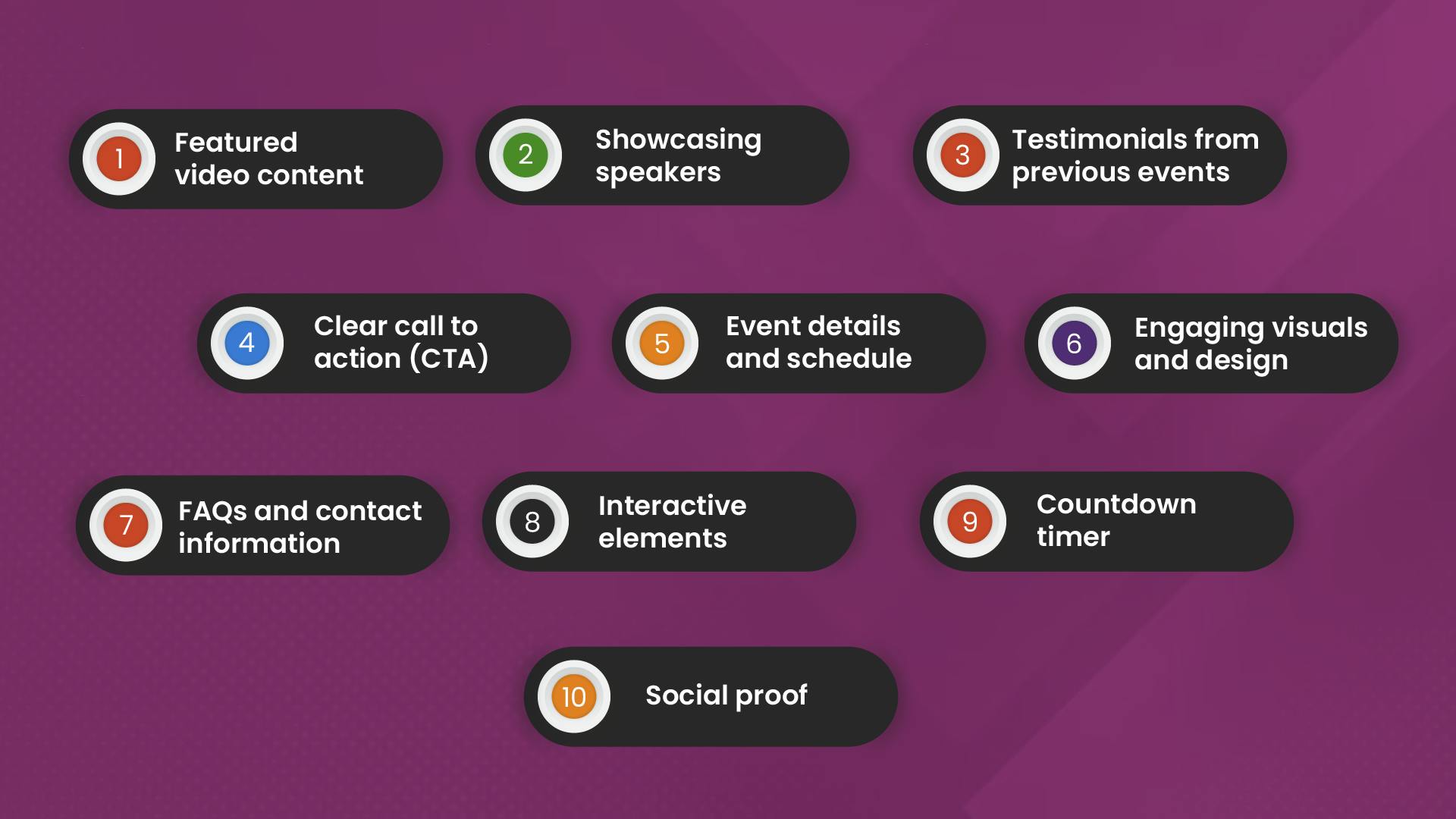
Featured video content: Kick things off with a captivating video that encapsulates the essence of your event. A brief teaser or a welcoming message from your speakers can stir up excitement and provide a sneak peek into what attendees can expect.
Showcasing speakers: People attend events for the experience and insights they can gain. Highlight your lineup of speakers, performers, or panelists with compelling bios and eye-catching visuals. This builds credibility and gives attendees a taste of the value they'll receive.
Testimonials from previous events: Nothing reassures potential attendees more than hearing about the positive experiences of past participants. Incorporate testimonials or short stories from previous events to establish trust and showcase the impact your event can have.
Clear call-to-action (CTA): Make it crystal clear what you want visitors to do – whether it's purchasing a ticket, signing up for updates, or registering for a newsletter. A bold, attention-grabbing CTA button strategically placed on the page can boost conversion rates significantly.
Event details and schedule: Provide comprehensive information about the event's date, time, venue, and schedule. An organized layout helps attendees plan their participation and ensures they won't miss out on any highlights.
Engaging visuals and design: Use high-quality images, engaging graphics, and a consistent color scheme that reflects the event's theme. An aesthetically pleasing design can make your event page more memorable and shareable.
FAQs and contact information: Address common queries attendees might have through a comprehensive FAQ section. Also, make sure to include contact information or a live chat option for further assistance.
Interactive elements: Add interactive features like a live chat or a comments section to encourage engagement and foster a sense of community even before the event begins.
Countdown timer: If applicable, a countdown timer can create a sense of urgency and anticipation, encouraging visitors to take action sooner rather than later.
Social proof: Integrate social media feeds, showing real-time updates and interactions related to your event. This demonstrates its relevance and popularity in real-time.
6. Optimize the event page for mobile
Accessibility is the name of the game today. Here’s a quick, fun fact (depending on how you want to see this) - Americans spend a staggering 4 hours and 25 minutes each day on their cell phones!
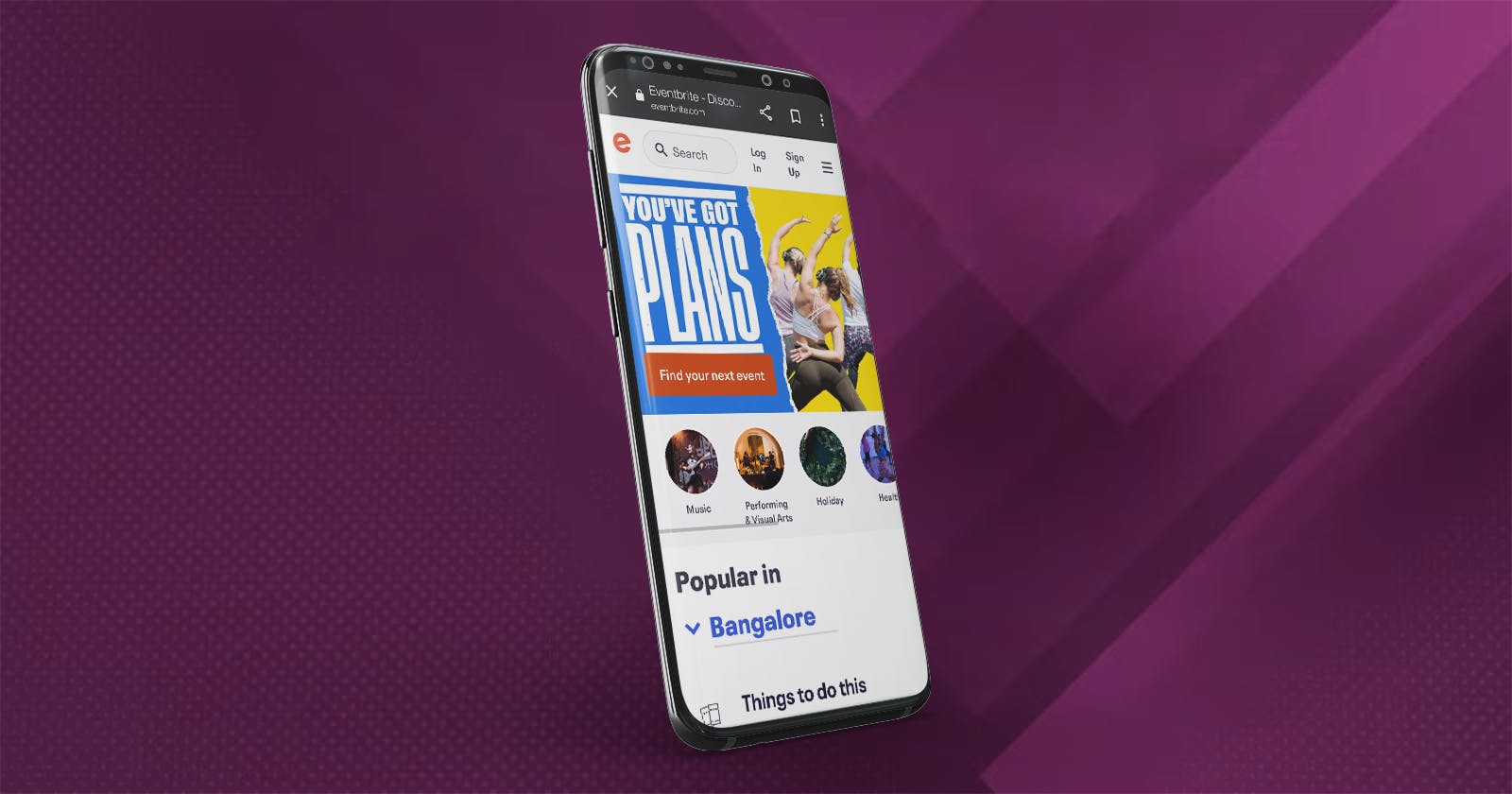
That's a significant chunk of time spent scrolling, browsing, and engaging with content. So, if your event page isn't mobile-friendly, you could be missing out on a massive audience.
When optimizing your event page for mobile devices, think of simplicity and ease of use. Keep in mind that smaller screens require a more concise layout. Ensure that images load quickly and text remains readable without the need for zooming in.
Test navigation to guarantee that buttons and links are comfortably tappable, minimizing frustration for users.
Responsive design is key – your event page should adapt seamlessly to various screen sizes and orientations. This means that whether someone is browsing on a smartphone, tablet, or desktop, the experience remains smooth and visually appealing.
Doing this helps you tap into a vast pool of potential attendees who are accustomed to accessing information on the go. This simple adjustment can lead to a significant boost in ticket sales and overall engagement.
Usually, a great event ticketing software should have the option for you to create ready-made event pages that are already optimized for mobiles too. If you want to explore some of the best event ticketing software in the market today, check out this article: Top 10 Best Event Ticketing Software For Your Events.
7. Make the checkout process quick and easy
Imagine this: a potential attendee is excited about your event, they've selected their tickets, and they're ready to commit. But then they encounter a cumbersome checkout process that requires multiple steps and unnecessary information.
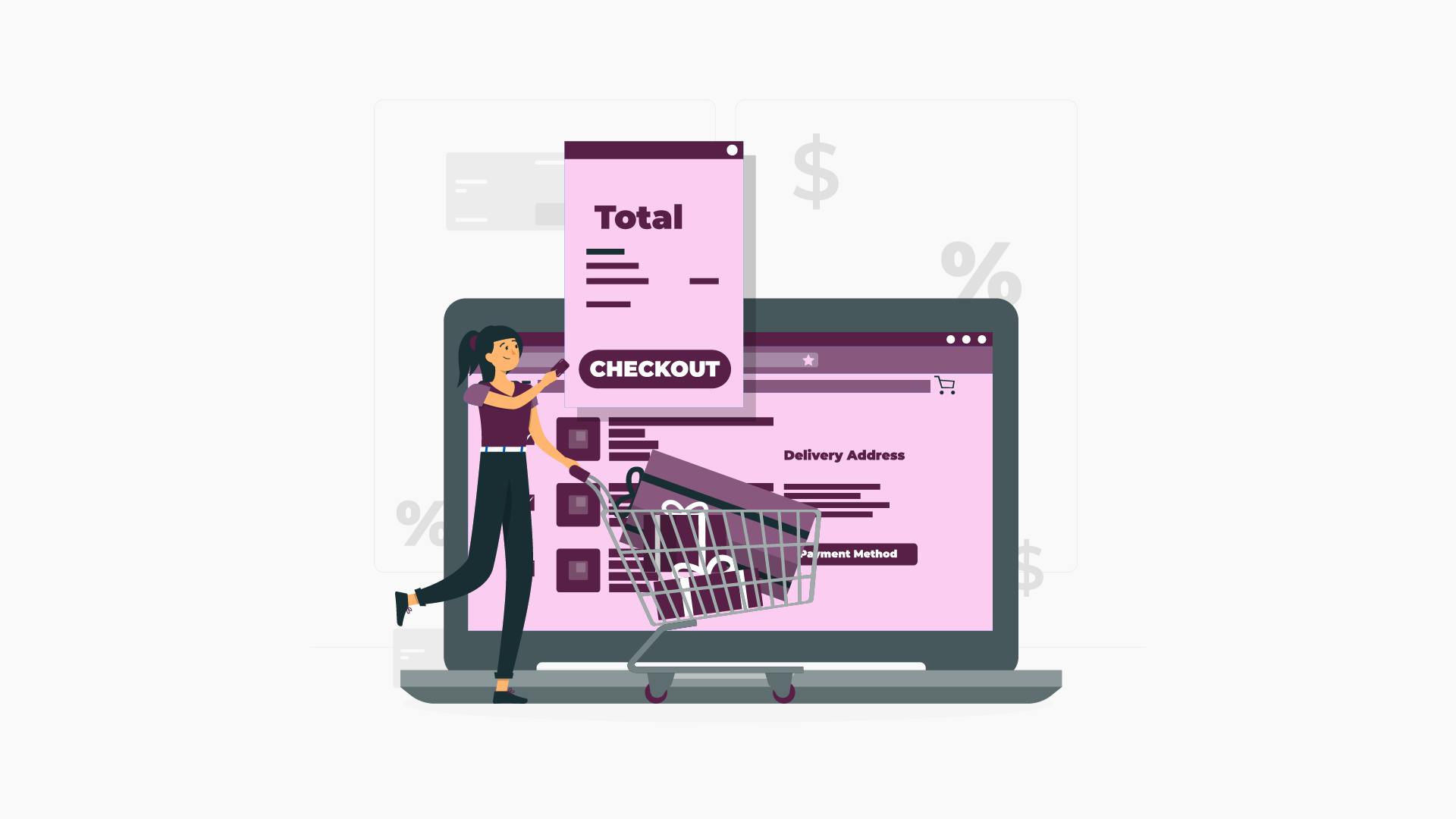
Chances are, you might lose their interest right there. This is why streamlining your checkout process is paramount.
Friction in the checkout process can lead to cart abandonment. Simplify the journey by requesting only essential information. Minimize the number of clicks required to complete the purchase. Allow users to easily edit their choices without starting over.
Simple checkout solution: Integrate a user-friendly, one-page checkout solution that displays all the relevant details in a clear and concise manner. This prevents confusion and keeps the user engaged until the final step.
Secure checkout options: Security is a top concern for online transactions. Implement secure payment gateways that offer encryption and protect users' sensitive information. Display security badges or logos to instill confidence.
Mobile-optimized checkout: Just as you optimize your event page for mobile, ensure that the checkout process is equally user-friendly on mobile devices. A seamless mobile checkout experience prevents frustration and encourages immediate action.
Guest checkout: Not everyone wants to create an account just to buy a ticket. Offer a guest checkout option so users can finalize their purchase quickly without the hassle of setting up an account.
The goal is to provide a frictionless experience that assures users of a secure and hassle-free transaction. This leaves a positive impression that can greatly impact their decision to attend your event.
8. Leverage referral programs and contests
Harnessing the power of your attendees' networks can be a game-changer when it comes to boosting ticket sales. Referral programs and contests are a dynamic way to transform your event attendees into enthusiastic promoters, all while incentivizing their engagement.
This is where platforms like KonfHub shine. Imagine running a referral contest where participants can win a variety of tickets based on their level of engagement.
For instance, those who refer 5 friends might win a Regular ticket, while those who refer 10 could earn a VIP pass. By personalizing the rewards, you're catering to various attendee preferences and motivating them to compete for higher-tier tickets.
The magic lies in offering rewards that resonate with your audience. You could offer early access to workshops, backstage passes, or even a chance to meet the speakers. These exclusive rewards tap into attendees' desires and elevate their commitment to participating.
Attendees who feel they're getting extra value become advocates, leading to more ticket sales as their networks grow. The beauty of these strategies is that they transform attendees into active participants in your event's success story.
9. Promote your event on social media
Social media is your event's megaphone. Leveraging the power of social platforms to plan marketing strategies for ticket sales is the quickest way to create a buzz around your event.
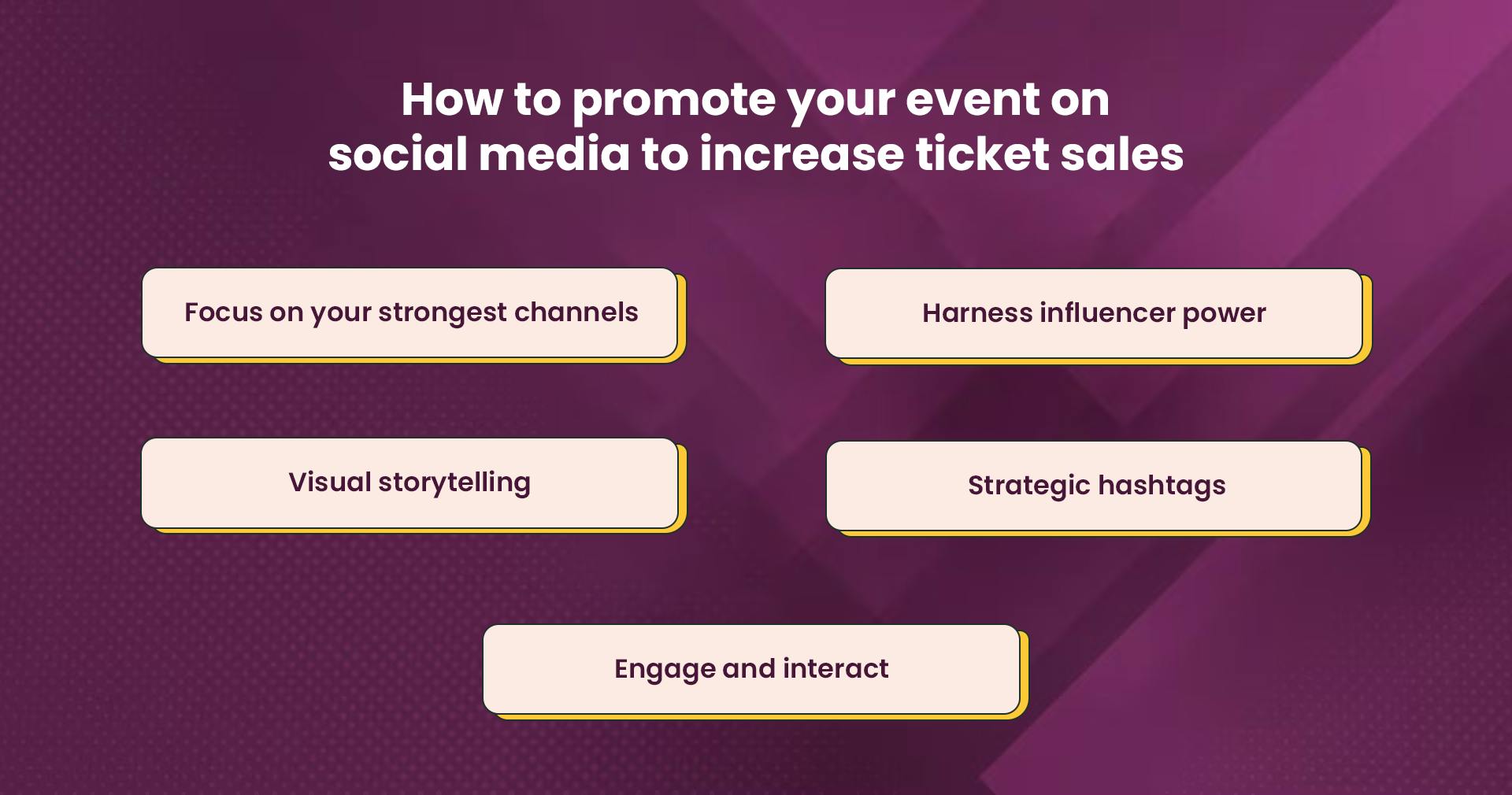
Focus on your strongest channels: Rather than spreading thinly across all platforms, target the social media channels where your potential attendees are most active. For a professional event, LinkedIn might be more effective than platforms like Instagram.
Harness influencer power: Collaborate with influencers in your industry to lend authenticity to your event promotion. Their dedicated followers are more likely to trust their endorsements, leading to increased interest in your event.
Visual storytelling: Capture attention with captivating visual content – images, videos, and graphics that encapsulate your event's essence. Teaser videos, behind-the-scenes glimpses, and speaker interviews can build anticipation.
Strategic hashtags: Utilize relevant and trending hashtags to extend your event's reach beyond your immediate followers. Incorporating these tags into your posts can make your content discoverable to a wider audience.
Engage and interact: Foster a sense of community by promptly responding to comments, messages, and mentions. Engaging with your audience online not only nurtures a connection but also boosts your event's visibility.
10. Use email drip campaigns
Harnessing the power of email drip campaigns can be a potent strategy to keep potential attendees engaged and excited about your event. Instead of bombarding them with a single email, consider a series of well-timed messages that gradually build anticipation.
Your first email can introduce your event and its key highlights. Subsequent emails can delve into different aspects like featured speakers, workshop details, or exclusive offers. Ensure that each email provides value and a clear call-to-action, whether it's to register, claim a discount, or learn more.
By spacing out these messages strategically, you're keeping your event on your audience's radar without overwhelming their inbox.
Email drip campaigns are an effective way to nurture interest, maintain engagement, and gently guide recipients toward becoming enthusiastic attendees.
11. Leverage both new and established forums and communities
Don't limit your event promotion to your own channels – expand your reach by tapping into online forums and communities. While engaging with your existing audience is crucial, exploring new spaces can open doors to fresh attendees.
Seek out platforms related to your event's niche, such as industry forums, social media groups, or online communities. Participate genuinely by offering insights and value, rather than simply promoting your event.
By establishing yourself as a valuable contributor, you'll naturally pique interest in your event among like-minded individuals.
This two-pronged approach – catering to both familiar and untapped audiences – can significantly broaden your event's reach and bolster ticket sales.
12. Team up with partners and sponsors

When it comes to boosting ticket sales, remember that you're not in it alone. Partners and sponsors share your vested interest in the success of the event, making them valuable allies in your promotional efforts. They're motivated to see those ticket numbers climb just as much as you are.
Leverage their networks and resources to magnify your event's reach. Collaborate on joint promotional campaigns that benefit both parties. They can offer exclusive deals to their customers or employees, co-host webinars, or even share event details on their platforms.
The beauty of this partnership is that you're both invested in the same outcome. By combining forces, you're tapping into their established relationships and enhancing your event's visibility.
It's a win-win situation that not only generates more ticket sales but also strengthens your event's overall impact.
13. Make use of your speakers’ and/or performers’ followings
Your event's lineup of speakers or performers isn't just there to shine on stage – they can also be powerful allies in driving ticket sales. They possess their own passionate followers who are eager to listen to their insights or enjoy their talents.
Engage your speakers or performers to become active promoters. Encourage them to share event details, teaser content, or even exclusive behind-the-scenes glimpses with their followers. Their endorsement carries weight, as their audience trusts their recommendations.
Harness their social media presence, blog posts, podcasts, or webinars to reach a wider audience. This collaborative approach not only enhances ticket sales but also enriches the event experience.
When is the best time to start selling tickets online?
In the world of event ticket sales, striking while the iron is hot is more than just a saying – it's a strategy that can significantly impact your success.
Today's consumers are savvy, and they're keen to gather information and secure their spots as soon as they hear about an event. In fact, research shows that 19% of potential buyers want to connect with an event brand right when they first learn about it.
This newfound independence in decision-making means you need to have your event ticketing up and running almost as soon as you make your announcement. Even if the event itself is still in the planning stages.
Why? Because once your prospects start researching, consulting their networks, and perusing your online presence, their purchasing decisions happen swiftly, usually within hours of learning about the event.
So here’s how you can go about the timing.
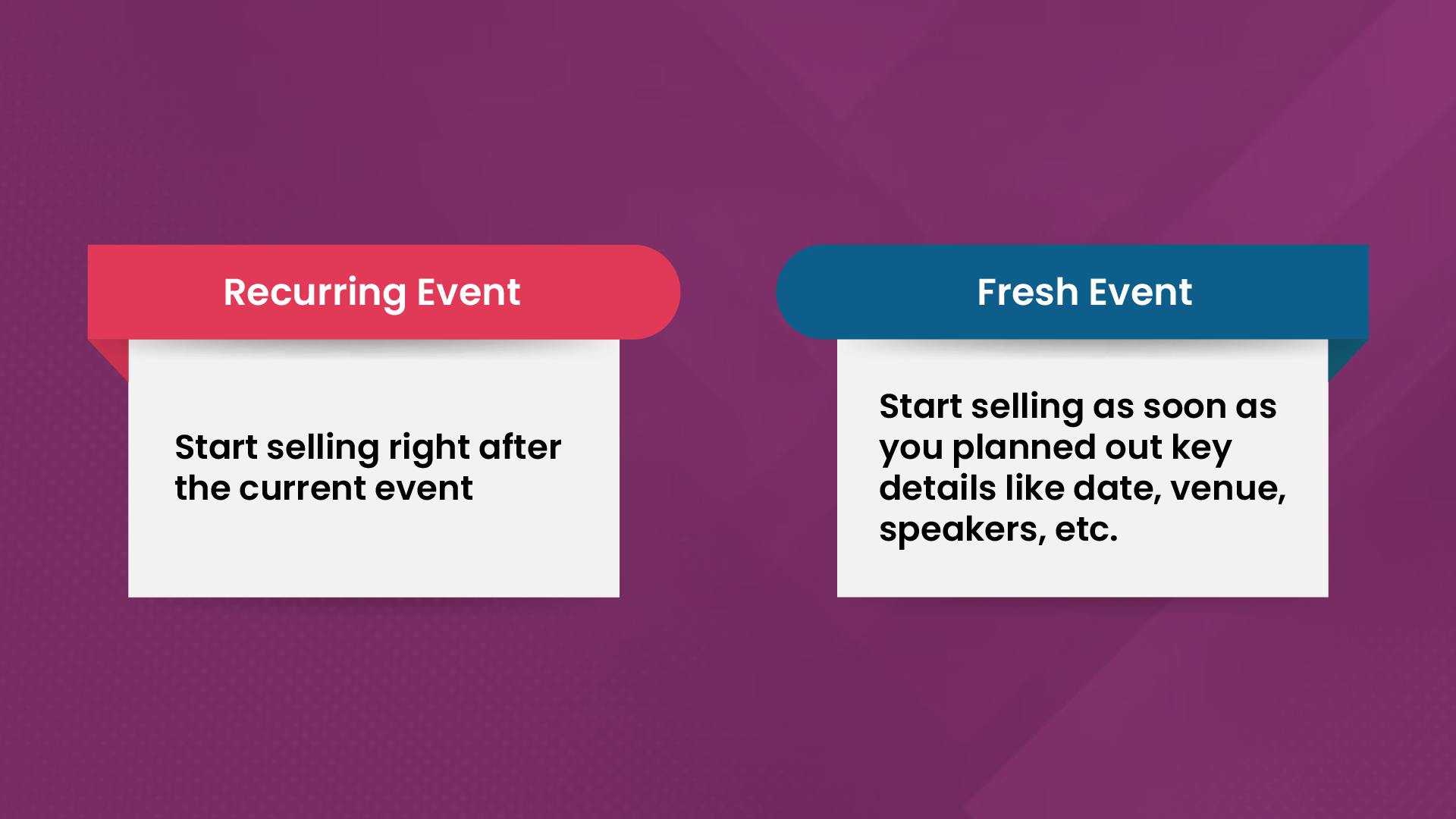
If you're hosting an event that has built a following and occurs regularly, the golden moment to start selling tickets is often right after the previous edition. Capitalize on the momentum and excitement generated by the recent success.
Attendees are already familiar with the event's value, and their enthusiasm is likely to translate into early ticket purchases.
When it's a fresh event, the key is to give yourself ample time to generate buzz and anticipation. Begin selling tickets as soon as possible, once you've nailed down the key details like the venue, date, and speakers/performers.
This allows you to create a buildup of excitement, teasing potential attendees with sneak peeks and updates leading up to the event.
Set competitive pricing, smart group discounts and run referral contests with KonfHub
In the dynamic world of event planning, the success of your event hinges on effective ticket sales strategies. The journey from initial planning to a sold-out event might seem like a lot, but the path to success is lined with proven strategies that can significantly transform your event's turnout and create an unforgettable experience for attendees.
As you set competitive pricing that strikes the perfect balance between perceived value and cost, create irresistible group discounts, and orchestrate engaging referral contests, you're tapping into powerful psychological triggers that resonate deeply with potential attendees.
These strategies not only drive ticket sales but also cultivate a passionate and engaged community around your event.
And when it comes to implementing these strategies seamlessly, KonfHub emerges as an invaluable partner. As a comprehensive event ticketing platform, KonfHub simplifies your process and amplifies your impact with a myriad of features such as:
Referral contests: Harness word-of-mouth marketing through KonfHub's referral contests. Personalize contests, incentivize participation and empower attendees to promote your event passionately.
Effective communication solutions: KonfHub's communication channels – email, WhatsApp, SMS – keep attendees engaged, ensuring they stay informed and excited.
Seamless event pages: Craft captivating event pages effortlessly with KonfHub's ready-made templates. Customize sections and ensure mobile optimization for a seamless experience.
Group discounts: KonfHub's group discount feature encourages larger bookings, amplifying ticket sales for greater success.
Book a demo with KonfHub today to embrace these strategies and create a triumphant event experience.

